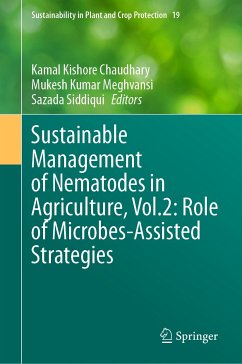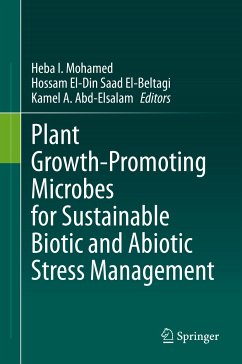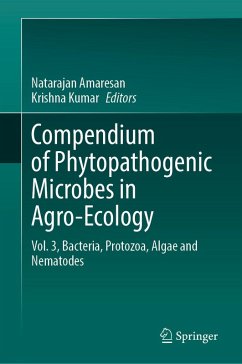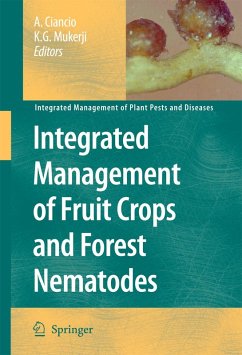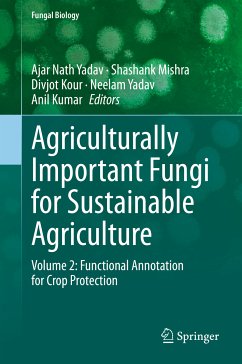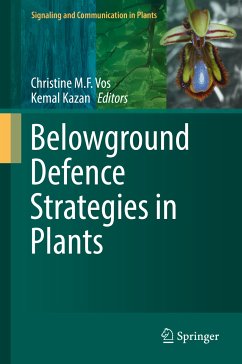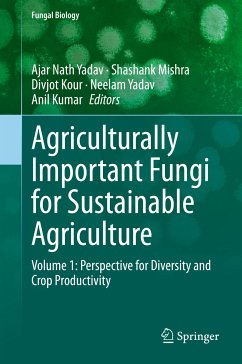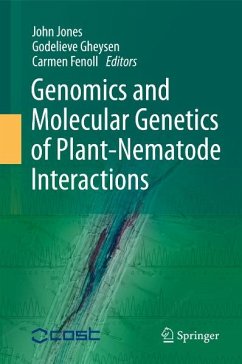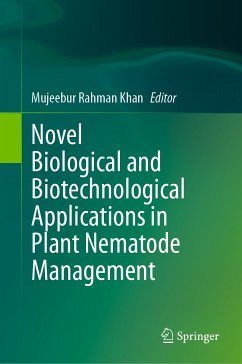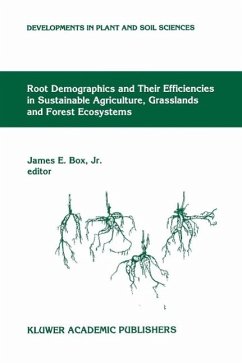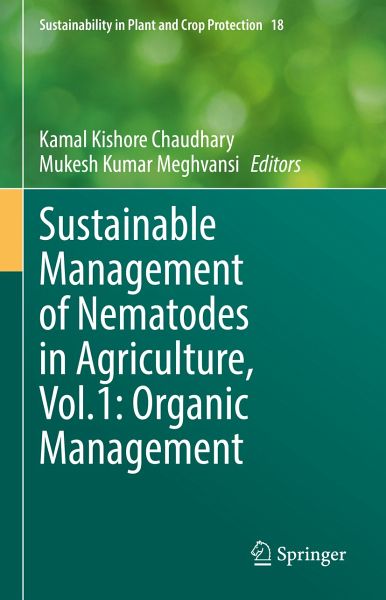
Sustainable Management of Nematodes in Agriculture, Vol.1: Organic Management (eBook, PDF)
Versandkostenfrei!
Sofort per Download lieferbar
112,95 €
inkl. MwSt.
Weitere Ausgaben:

PAYBACK Punkte
56 °P sammeln!
The present work covers many aspects of plant nematode management using organic strategies. These range from applications of latest understandings of fundamental concepts/mechanisms of nematode control, to modern tools and techniques used in efficacy evaluation. The Volume also includes some case studies/applied aspects of organic nematode pest management.Chemical and physical control measures used for nematode management have their own implications. Against this backdrop, organic management of plant nematodes appears as a more rational and sustainable approach. However, concise information on...
The present work covers many aspects of plant nematode management using organic strategies. These range from applications of latest understandings of fundamental concepts/mechanisms of nematode control, to modern tools and techniques used in efficacy evaluation. The Volume also includes some case studies/applied aspects of organic nematode pest management.
Chemical and physical control measures used for nematode management have their own implications. Against this backdrop, organic management of plant nematodes appears as a more rational and sustainable approach. However, concise information on the current topic is scarce. This book is a sincere effort to bridge this void as we aim to provide the most updated, critical and in-depth knowledge synthesized by many experts working in the field of plant nematology, worldwide.
Chemical and physical control measures used for nematode management have their own implications. Against this backdrop, organic management of plant nematodes appears as a more rational and sustainable approach. However, concise information on the current topic is scarce. This book is a sincere effort to bridge this void as we aim to provide the most updated, critical and in-depth knowledge synthesized by many experts working in the field of plant nematology, worldwide.
Dieser Download kann aus rechtlichen Gründen nur mit Rechnungsadresse in A, B, BG, CY, CZ, D, DK, EW, E, FIN, F, GR, HR, H, IRL, I, LT, L, LR, M, NL, PL, P, R, S, SLO, SK ausgeliefert werden.



